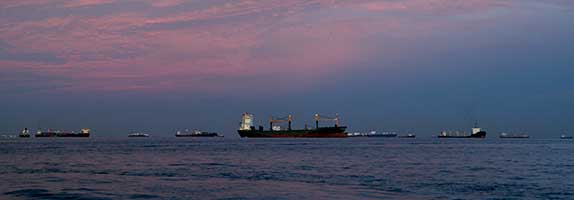

Chile has one of the most ambitious decarbonization plans in the world, targeting carbon neutral electricity in 2050. This South American country is already at a 70% renewable energy share with some of the world´s best wind and solar resources available. It is possible to retire coal in Chile before 2030 and to reach a 100% carbon neutral power system before 2050.
During the “Chile, towards a Future of 100% Renewable Energy” webinar in July, 2021, Wärtsilä experts Jussi Heikkinen, Growth and Development Director and Antti Alahäivälä, Business Development General Manager shared the results of the follow-up study “Towards a Future of 100% Renewable Energies.”
“Many have asked whether it would be possible in Chile to retire coal even before 2030 and sure, it is possible,” Heikkinen said. “However, the power system is not capable of serving the load without coal and diesel oil plants until adequate quantities of new solar, wind, battery storage and flexible gas generation plants have been built.”
A panel of local and international energy-related experts joined Heikkinen to discuss the results of the study. Founding partner of EnerConnex, Ana Lía Rojas, Inodu Consultant Jorge Moreno and Head of the Studies and Policies Division for the Ministry of Energy, Carlos Barría Quezada, shared their impressions of the study during the panel review moderated by Carlos Finat with the Chilean Association for Renewable Energies, ACERA AG.
“I want to thank Wärtsilä for the effort made in developing this second study that comes to give us additional light and background on the potential and tremendous possibilities that Chile has to make an early energy transition,” Finat said. “It’s a very in-depth study.
“I think the value of having this type of study and reports available is that it is precisely for those decision makers that can evaluate and can access in-depth this study because this study gives us scenarios,” Rojas added. “The value of the scenarios I think is fundamental, to understand what is possible and how it is possible to make this path towards the energy transition and a 100% renewable electricity system.”
“Congratulations on the study and the analysis,” Barría Quezada said. “It is always valued. In Chile the contribution of technical and rigorous studies allows us to understand the possible paths of the electrical system. We have to be doing things today [not in the next few years] and this kind of analysis shows us the urgency of the regulatory point of view.”
The study indicates that although competitive renewable energy and battery storage are available, the missing piece of the puzzle is long-term energy storage, which has the role of ensuring proper system function and reliability even during longer usual weather patterns such as drought, extreme heat or cold waves, cloud cover and rain, low wind periods as well as low solar seasons such as winter.
Utilizing the Power-to-Fuel-to-Power as the long-term energy storage saves Chile an estimated 17 billion dollars or 26 percent in investments and enables lower generation costs with better system reliability.
There are 4 main stages in the decarbonization process:
Here are some key findings from the study:
The plan is fully realistic, and it can be done without new technologies, but policy changes on the regulatory side are necessary to accelerate progress.
Watch the recording and download the presentation here: https://www.pathto100.org/event/chile-towards-a-future-of-100-renewable-energy/
Media contact for more information on this release:
Tamara Rivera
Marketing & Communications Manager, AMER
Wärtsilä Energy
Mob. +1 (832) 983-2129
tamara.rivera@wartsila.com
Wärtsilä Energy in brief
Wärtsilä Energy leads the transition towards a 100% renewable energy future. We help our customers in decarbonisation by developing market-leading technologies. These cover future-fuel
enabled balancing power plants, hybrid solutions, energy storage and optimisation technology, including the GEMS energy management platform. Wärtsilä Energy’s lifecycle services are designed to increase efficiency, promote reliability
and guarantee operational performance. Our track record comprises 74 GW of power plant capacity and more than 80 energy storage systems delivered to 180 countries around the world.
www.wartsila.com/energy
Wärtsilä in brief
Wärtsilä
is a global leader in smart technologies and complete lifecycle solutions for the marine and energy markets. By emphasising sustainable innovation, total efficiency and data analytics, Wärtsilä maximises the environmental and economic performance
of the vessels and power plants of its customers. In 2020, Wärtsilä's net sales totalled EUR 4.6 billion with approximately 18,000 employees. The company has operations in over 200 locations in more than 70 countries around the world. Wärtsilä
is listed on Nasdaq Helsinki
www.wartsila.com